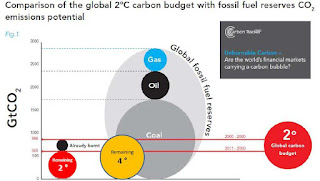This evening the petrol price increases with 93c/l and I did not have time go and fill up the bakkie. By Thursday, when the warning light comes on, I'll be paying R11.97 per litre. We'll it is not like I ever completely fill up, but never mind. It is in the news and economists have already been giving their views:
- Another increase of about 20c/l is expected for next month, but Dawie Roodt says that the price may fall again in November if the oil price and exchange rate improves.
- It is an additional input cost for the transport industry and it will reduce margins in aviation even further.
- The increases will sqeeze consumers that are already struggling. It follows recent food price increases and the poor are of course particularly vulnerable.
- It will also add to general inflationary pressure - as estimated 0.3 percentage points to September's monthly inflation rate.
The key drivers at this stage is the higher crude oil price and weaker rand-dollar exchange rate. I made a quick graph. The numbers only go up to August and since then the oil price has increased to $114 per barrel and the rand has weakend to R8.40 to the dollar. These recent price movements underlie the increases in the petrol price. The scary part is that the oil price is not as high as it has been and the rand is not as weak as it has been.
Now, the real economists don't really explain why the oil price and exchange rate might improve in November. The northern hemisphere's winter will be starting and I'm not sure that there will be less uncertainty in the world's hot spots, but of course, a global recession will help! As an academic economist I wondered what happens to the quantity demanded when the price is high and likely to stay high.
Work by Willem Boshoff of Stellenbosch University and Econex shows some interesting price elasticities. His own estimations covering the period 1998 to 2009 find a long-run price elasticity of -0.53. For every 10% increase in the price of petrol, the quantity demanded decreases by 5.3%.
One alwys thinks that this would be completely inelastic - there is nothing else that you can put in the tank! But people do find ways to use less fuel, whether it is driving more economically, taking fewer trips around town, or over time switching to smaller, more fuel efficient vehicles.
I'm all in favour of these adjustments. My bicycle is still only used for recreation, but getting to work a bit warm and sweaty will not be that bad at R15/l or R20/l. Which brings me to a final two points. Approximately 27% of the fuel price is made up of levies and taxes. Price increases typically go along with increases in calls for government to reduce these. Lets put aside for a moment the efficiency of the spending of government's tax income and consider that part of the levies and taxes are Pigouvian - aimed at reflecting the pollution cost to society that our driving to the mall is causing. Burning fuel pollutes and we should pay for the negative externality.
In South Africa this is not a particularly popular point of view. We face numerous serious challenges and any talk of carbon taxes are greeted with the question: Do you know what that will do to growth?
Recently I went to an interesting energy seminar. Uninformed as I was, I thought that at least, global warming will be slowed by the depletion of fossil fuels. If there is nothing left to burn, we won't completely change the climate. Turns out I was wrong. There is more than enough fossil fuels left to completely change the climate. Considering that, a higher petrol price and less driving around town might not be such a bad thing.



No comments:
Post a Comment